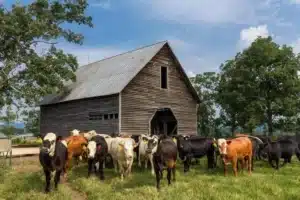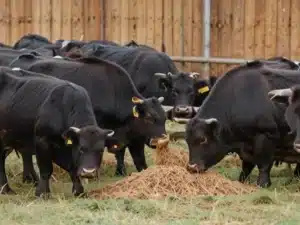How to Raise Wagyu Beef? The Experienced Approach
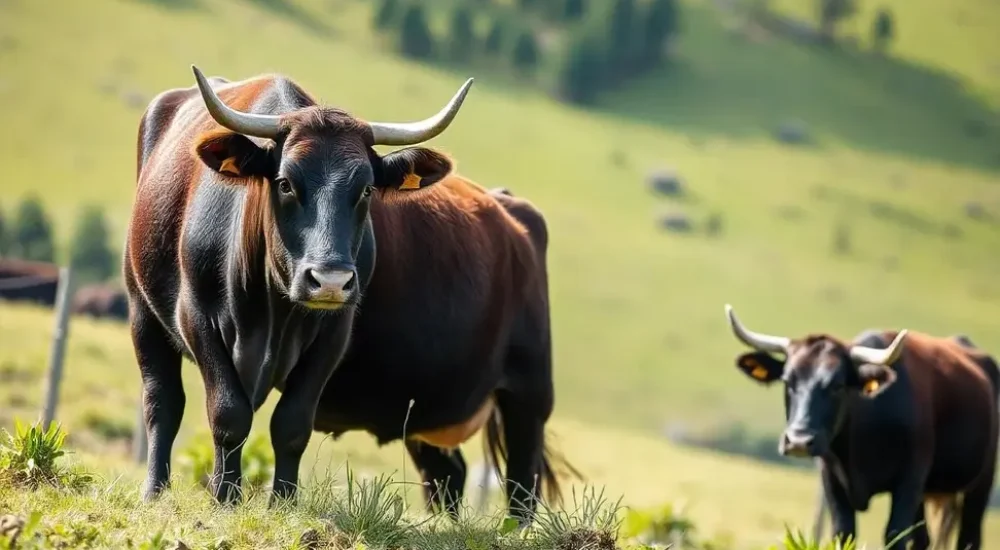
People may know that Wagyu meat comes from cattle that have been raised in the traditional, correct, time-consuming, and careful ways. It takes a process to make comfort food or high-end beef, like Japanese Wagyu or American Wagyu. From letting cattle graze on the grass to giving them grains to get the best marbling score, taste, texture, and overall buyer value, which is worth a lot of money on the world market. So, this piece will tell you everything you need to know about how to raise wagyu cattle, including what they should eat, how to treat them properly, and some science facts that may help you get the right amount of marbling.
1- Understanding Wagyu: More Than Just Beef
The intensely patterned beef called wagyu comes from Japan. It is very marbled and has a very strong, rich flavor. Wagyu beef is different from regular beef because of the type. Wagyu cattle, especially Akaushi cattle, have genes that allow them to store stress and fine bands of fat throughout their muscles. This marbling is a sign of Premium Wagyu Beef, whether it’s traditional Japanese Wagyu or Japanese Wagyu that is imported or exported, like Japanese-American Wagyu.
Key Takeaway:
To be more specific, Wagyu is a completely different breed. It is a complicated structure that gives Wagyu its buttery texture and deep rich tastes that meat fans will know.
2- Grass-Fed Beginnings: The Foundations of Healthier Beef
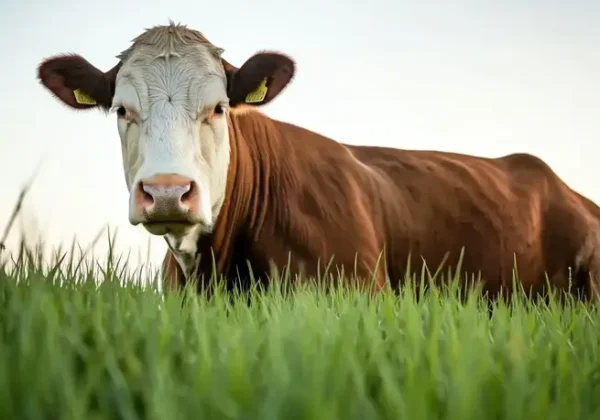
For Wagyu, grass-fed is one of the most important things to do when they are young. Cattle that are fed natural grass can build lean muscles for their meat. This means that the beef that is sold is low in calories and high in nutrients. Beef that has been raised on grass also has higher amounts of oleic acid, CLA, and HDL cholesterol.
We grow good fields for our Wagyu cattle to eat. This place has dirt that is similar to the soil in Kumamoto region, Japan, which is where Akaushi cattle are raised.
Key Takeaway:
The main idea behind feeding your Wagyu a grass-based diet is to keep it away from unhealthy meats and give it plenty of nutrients that will help it grow properly.
3. Grain-Finished Perfection: How to Get That Desired Marbling
However, giving the cows grains is very important because this is where the marbling that is so characteristic of Wagyu happens. In the last few months of their lives, we switch what we feed our cattle to our specialty grain mix. With this grain finishing, the cattle would gain weight as needed so that the beef would get the rich marbling that makes Wagyu beef so special. At the moment, the MM diet uses a grain mix that has sorghum, soybeans, and steam-flaked corn in the right amounts for taste, softness, and marbling.
One thing that makes our process unique is that it was created with the help of cow experts from both the US and Japan. This ensures that the feed we make is of high quality. We must grow sorghum because it grows on our land and makes sure that our cattle are the right weight at all times of their lives.
Key Takeaway:
If you’re maturing your Wagyu cattle for grain finishing, this is the process that ensures a Wagyu has the type of fine marbling responsible for the rich texture and flavor of Wagyu beef.
4. Water Matters: Watering the Cattle for Soft Meat
This is something that the average farmer will agree with, that water is essential when it comes to rearing healthy cattle. We take it even further by offering our herd the luxury of natural limestone-filtered streams and springs. This not only purifies the water and filters out different contaminants, but also stimulates the cattle to intake larger volumes of water. Water is essential for cattle as well-hydrated animals are known to consume more feed, put on weight consistently, and produce tender, superior-quality beef.
Key Takeaway:
Availability of natural, running water facilitates the development of tender beef, while at the same time caring for the health of the livestock.
5. Free-Range Cattle: Ensuring Humane Treatment
But Wagyu cattle are not only well fed; where they live also counts. The people at our farm trust that cattle that have grazed freely throughout their lives will produce the best beef. Pasture-based production brings less stress to the cattle, better muscle creation, and minimal density allowing diseases that release adrenaline that toughens meat to thrive. In addition, free-ranging environments encourage more natural ways of the cattle’s behaviors resulting in healthier cattle.
What we do is not only offer a place. We have a group of cattle consisting of approximately 500 animals that are freely pastured within more than a hundred hectares of land: far from conditions known to be typical of massive farm production. This helps our Wagyu cattle remain stress-free as they graze, factors that define their overall health and thus the quality of the resultant meat.
Key Takeaway:
Pasture farming practices enhance the well-being of Wagyu cattle; thus, producing juicy and deliciously tasty meat.
6. The Science of Wagyu: DNA Testing and Wagyu Authenticity
All Wagyu cattle in our company are DNA profiled to confirm their parentage and to verify their Akaushi heritage. This strict quality assurance ensures each cut of beef coming from our farm attains the quality that Wagyu brand is credited for hence providing you with the confidence of getting the best Wagyu authentic beef.
DNA testing not only protects our herd’s purity but also monitors our cattle’s health and the uniformity of our meat.
Key Takeaway:
Another interesting fact about Wagyu cattle is that to raise them, you have to be as genuine as the breed itself. To be sure that consumers are getting the best Wagyu beef in the market, DNA testing guarantees that you are creating and selling the best.
7. Humane Practices: Stress-Free and Antibiotic-Free Cattle
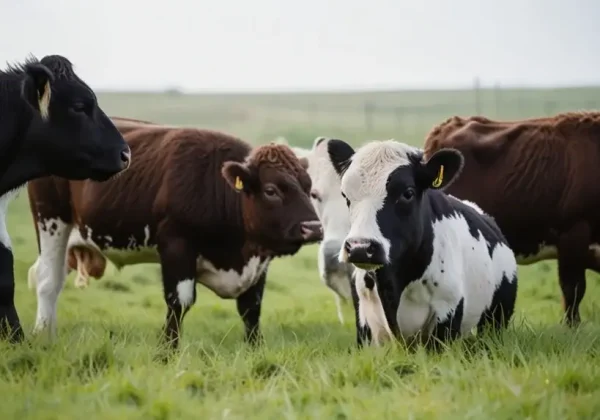
A very important factor when it comes to the rearing of the above premium Wagyu beef is the treatment of the cattle. What makes it unique is that we do not use antibiotics and other chemicals on our cattle to boost their immune system naturally. Lowering stress in cattle reduces the number of muscles in their meat, so our animals are not overcrowded or inhumanely handled.
Calm cattle will not release adrenaline which creates a harder texture in the meat. We let our animals graze and roam around while giving them the best care possible so every steak that’s produced from our farm is tender, succulent, and full of flavor.
Key Takeaway:
Animal treatment standards that include no use of antibiotics to raise the animal and minimizing stress are paramount in raising Wagyu beef.
Final Thoughts
It is a special process of growing Wagyu beef that needs passion, commitment, willingness to work, and a contractor’s attention to detail. By practicing these procedures highlighted here, the Wagyu cattle will give you the best beef quality all through.
FAQs
How long does it take to raise a Wagyu cow?
It usually takes 30 to 36 months to raise a Wagyu cow. It usually takes 18 to 24 months to raise other types of beef animals, so this is a lot longer than that. Wagyu cattle are given more time to grow the marbling and rich taste that makes their beef so popular.
What is the lifespan of a Wagyu cow?
The cow may live longer, up to 10 to 15 years, if it is used to breed other cows. Because Wagyu bulls live longer, breeders can keep high-quality genetics in their herds, making sure that the desirable features will continue to show up in future generations.
How long is a Wagyu cow pregnant?
A Wagyu cow is pregnant for approximately 283 days, which is about 9 months, similar to the gestation period of other cattle breeds.

